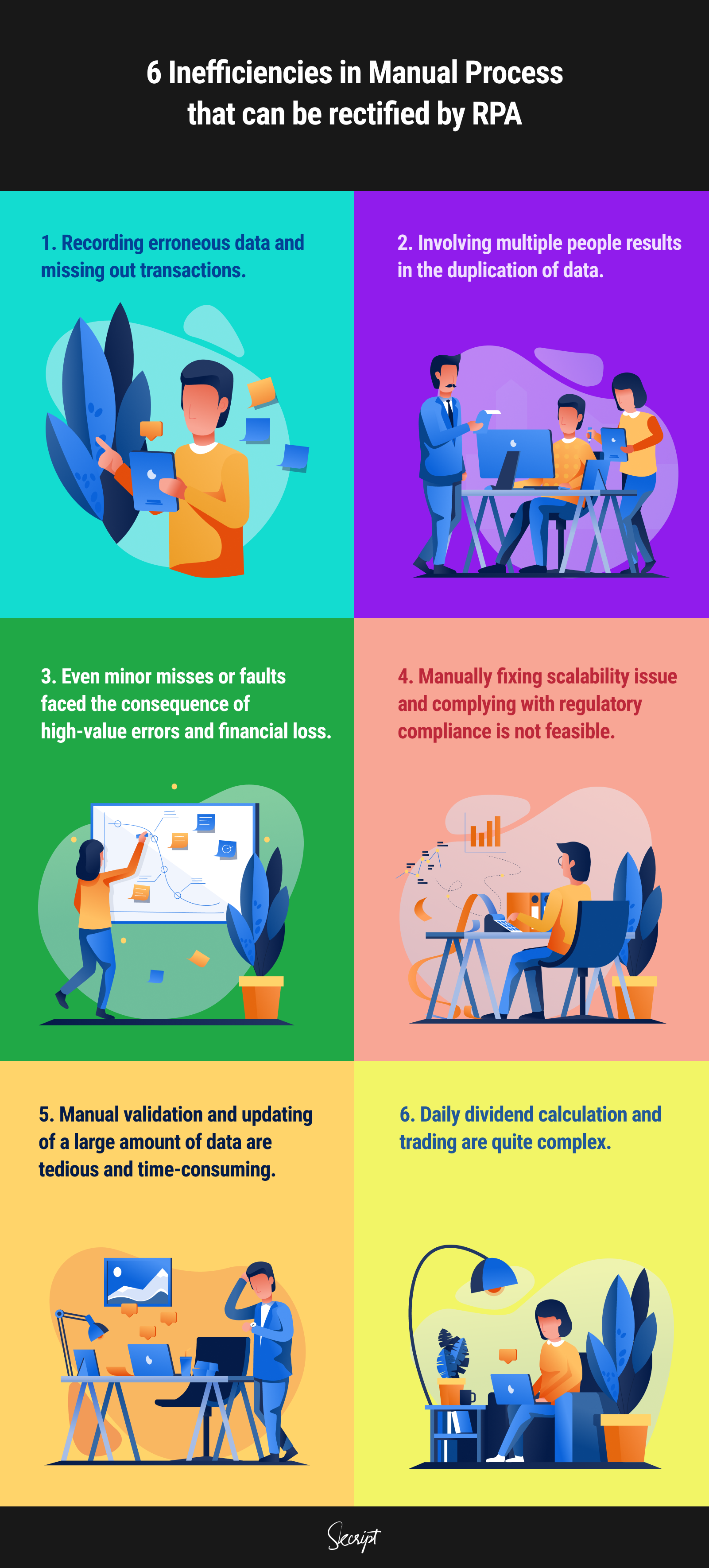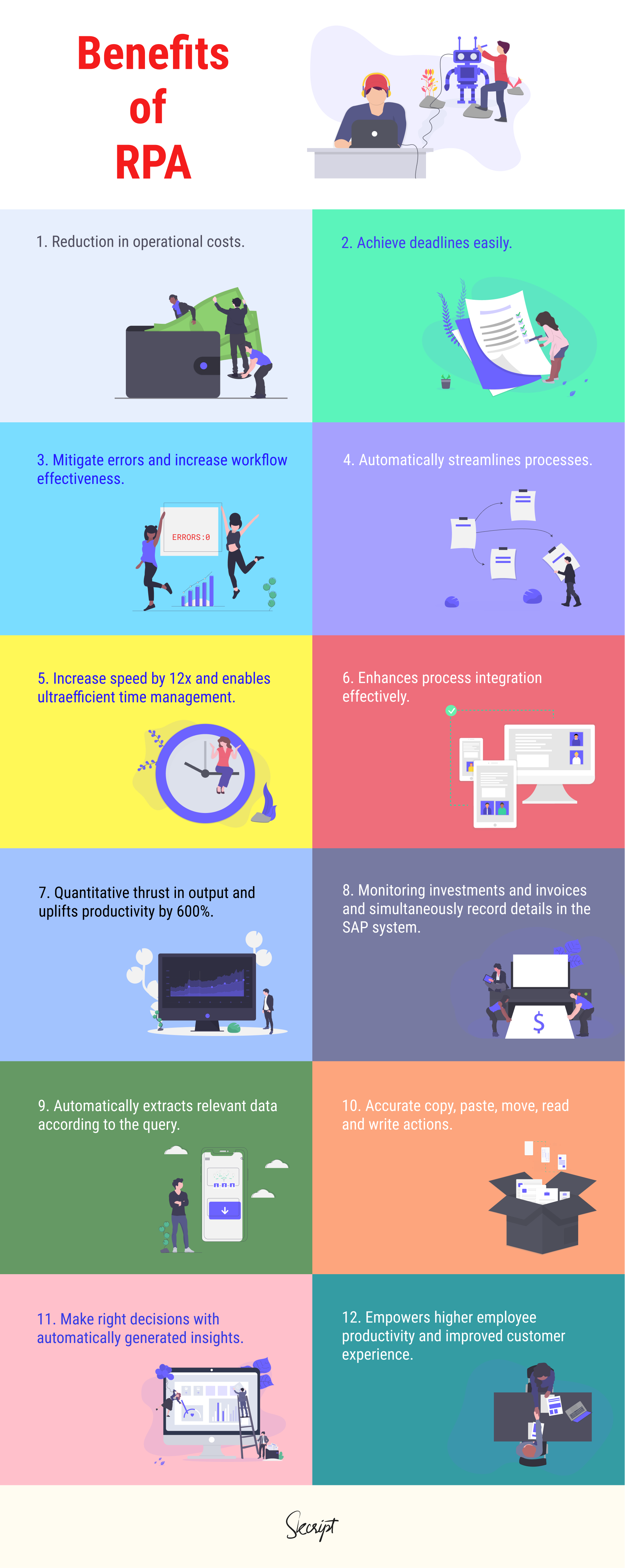If you have been on the internet today, chances are that you have interacted with RPA at least once without even recognizing it.
Are you registering a complaint about a chat on their website? Receiving automated emails from your favorite provider about the latest shows? The list is long when it comes to how RPA makes day to day life easier.
And RPA’s potential effect on workplaces is on an exponential increase. Any task that are small scale, say copy pasting 30 documents or filling 50 application forms for customers is easy for anyone to handle. But when it comes to filling out 500 or 5000 forms, or maintaining those records becomes exhausting easily. In such a situation, we all would face frustration and stress. The work is no longer challenging and awarding, particularly while performing a repetitive routine task and while handling a plethora of data.
Even if the task is executed, it would consume a lot of time, effort and we may encounter errors. This is where RPA provides a helping hand and help gain measurable efficiencies. This article explains how RPA is our friend in solving human inefficiencies in usual manual processes.
Inefficiencies of a manual process:

RPA benefits:
The struggles faced by organizations to achieve efficiency is easily eradicated when the organization and its employees work hand-in-hand with RPA.
RPA can handle the basic rule-based and repetitive tasks while the employees can take up more challenging tasks where cognitive skills are more required. RPA can not only reduce the workload from the employees but makes achieving critical timelines like working with massive data possible.

Some examples:
- An automation layer categorized the mutual fund statements from attached documents and automatically downloaded them in a data server.
- Automatically extract data for required fields from the statements which were downloaded in an unstructured format.
And the limitations of RPA doesn’t replace the need for human employees, so, you don’t have to worry about RPA replacing jobs. There are tasks like creative thinking, strategic planning and understanding empathy that require cognitive skills only human employees are capable of.
According to John Maynard Keynes prediction , it is said that by 2030 humans will be working for only 15 hours a week and the rest of the time will be given over to leisure and creative tasks. And RPA will be one of those technologies that will play a significant role in building that future.
Subscribe to our newsletter
Get the latest updates from our team delivered directly to your inbox.
Related Posts
3 Genius ways to use RPA in your organization
RPA can help your organization handle data 10x times better. Read to explore the different ways.
9 Key Business Benefits of RPA
RPA, the next evolution of business operations provides huge benefits to enterprises by automating their manual and repetitive tasks, enabling humans to work on creative and logical tasks
A Guide to Extracting Multiple Tables from Web Page with UiPath
Data scraping is transforming the world with its applications. Digital businesses, Marketing and researchers are highly benefited by data scarping. Here is how to extract multiple tables from single webpage using Uipath.
